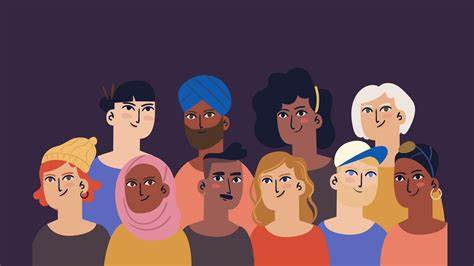Culture plays a fundamental role in shaping the psychological development of individuals, influencing their beliefs, values, behaviors, and perceptions of the world. From early childhood through adulthood, cultural contexts provide the framework through which individuals understand themselves and navigate their social environments. This article explores the intricate relationship between culture and psychology, examining how cultural factors shape various aspects of individual psychological development.
Cultural Identity and Self-Concept
- Formation of Cultural Identity: Cultural identity refers to the sense of belonging and identification with a particular cultural group or community. From a young age, individuals internalize cultural values, norms, and traditions that shape their sense of self and identity. Cultural identity influences how individuals perceive themselves, relate to others, and interpret their place in the world.
- Cultural Socialization and Belief Systems: Cultural socialization—the process by which individuals learn about their cultural heritage and values—plays a crucial role in shaping self-concept and worldview. Cultural belief systems, including religious beliefs, moral values, and gender roles, provide individuals with frameworks for understanding themselves and their place within their cultural and social contexts.

Socialization and Interpersonal Relationships
- Family Dynamics and Parenting Styles: Family environments serve as primary contexts for cultural socialization, transmitting cultural values, norms, and practices from one generation to the next. Parenting styles, communication patterns, and disciplinary practices vary across cultures and influence children’s socialization experiences, emotional development, and interpersonal relationships.
- Peer Groups and Social Norms: Peer groups and social networks provide additional contexts for cultural socialization and identity development. Cultural norms regarding friendship, communication, and social behavior shape individuals’ peer relationships and influence their socialization experiences. Peer acceptance and conformity to cultural norms play significant roles in shaping adolescents’ self-esteem and social development.
Cognitive Processes and Perception
- Cultural Schema and Cognitive Frameworks: Cultural schemas—organized structures of knowledge, beliefs, and expectations—shape individuals’ cognitive processes and perception of the world. Cultural differences in cognitive frameworks, such as attention, memory, and problem-solving strategies, influence how individuals perceive, interpret, and remember information in culturally meaningful ways.
- Cultural Influence on Perception: Culture influences individuals’ perceptions of themselves, others, and the world around them. Cultural differences in perception, such as the emphasis on collectivism versus individualism, affect how individuals interpret social cues, emotions, and interpersonal relationships. Cultural contexts also shape aesthetic preferences, spatial orientation, and sensory experiences.
Emotional Expression and Coping Strategies
- Cultural Norms of Emotional Expression: Cultural norms dictate how individuals express, interpret, and regulate their emotions in social interactions. Cultural variations in emotional expression, such as the display rules for expressing happiness, sadness, or anger, influence individuals’ communication styles, interpersonal dynamics, and coping strategies.
- Cultural Coping Strategies: Culture influences individuals’ coping strategies and resilience in response to stress, adversity, and life challenges. Cultural factors, such as religious beliefs, social support networks, and cultural healing practices, shape individuals’ approaches to managing stress, seeking help, and maintaining emotional well-being.
Conclusion
Culture exerts a profound influence on individual psychological development, shaping beliefs, values, behaviors, and cognitive processes from early childhood through adulthood. By understanding the intricate relationship between culture and psychology, we gain insights into the diverse ways in which cultural contexts shape individual experiences, identities, and worldviews. As we navigate the complexities of cultural diversity and globalization, recognizing the influence of culture on psychological development fosters empathy, cultural competence, and mutual understanding in our increasingly interconnected world.
